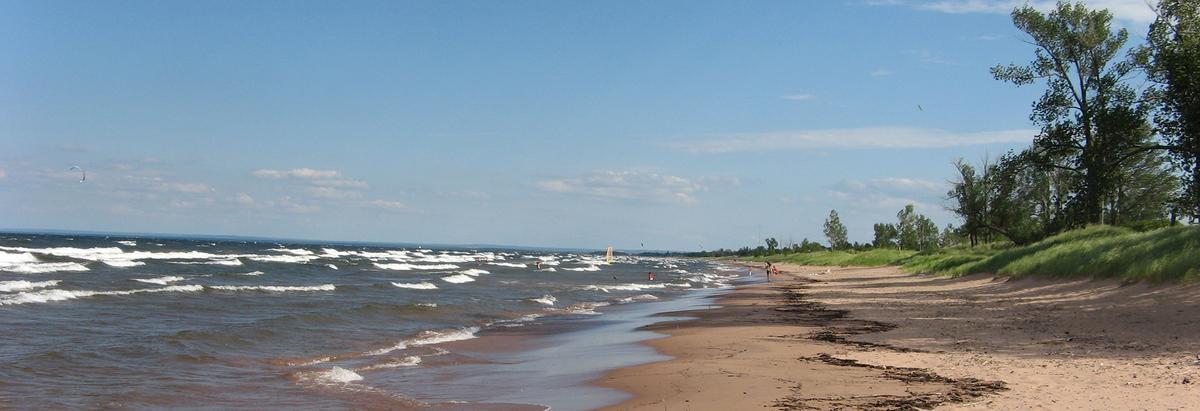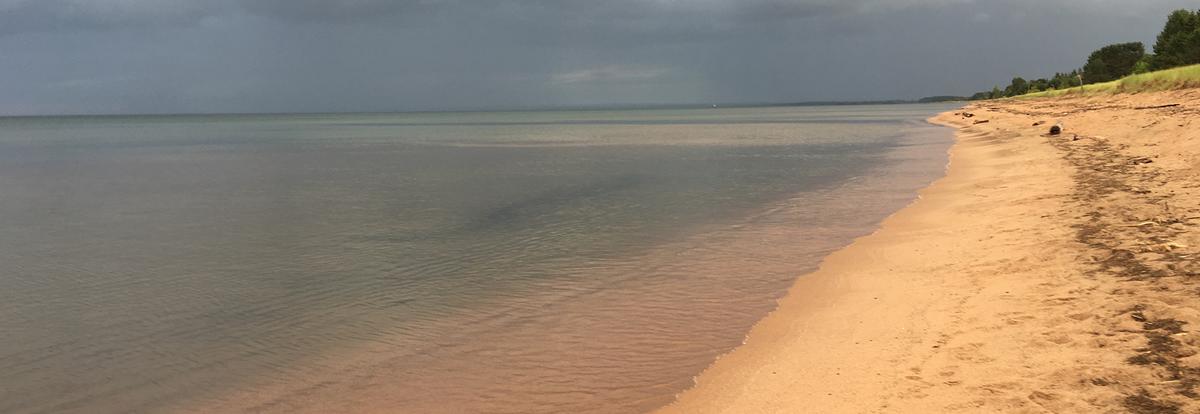
This project seeks to secure a new observation buoy to provide accurate, real-time measurements of wave height, wave direction, wave period, wind speeds, and water temperatures at three depths for Park Point Beach in Duluth, Minnesota, is a popular destination for the local community and tourists.
The beach's sandy shores are very rare along Lake Superior in Minnesota. Park Point Beach located on Minnesota Point is part of a sand spit forming part of the baymouth bar that encloses the St. Louis River estuary. Minnesota Point is formed and maintained by longshore currents that transport and deposit sand from shores to the east in Wisconsin.
During certain weather conditions, dangerous rip currents develop and pose a threat to beachgoer safety. This project seeks to address this problem by providing a reliable, accurate real-time wave measurement buoy to inform the National Weather Service, Duluth Office's, rip current warnings.
Additionally, beach visitors benefit from onsite conditions prior to visiting. The website ParkPointBeach.org, created by Minnesota Sea Grant years ago and given the city of Duluth in 2023, provided beachgoers with weather, wave, water temperature, and bacteria warnings. An observation buoy that provided information on waves used to make rip current forecasts was taken out of service in 2022.
Without an observation buoy, ParkPointBeach.org could not provide visitors with warnings of potential risks prior to visiting the beach and entering the water.
The new system created by this project will provide actionable information to both local agencies and beach visitors to provide real-time conditions and potential associated risks.
Beyond public safety, there is a need to expand observation system access, affordability and ability to extend observation seasons on the Great Lakes into the winter. Nearly 98% of on-water observations over the last 40 years come during an 8-month period. Acquiring and deploying a proven technology provides a local site for validating new wave and water quality monitoring technologies that will benefit scientists and coastal communities.
The Spotter Buoy + Smart Mooring System will serve as an important component of public safety along Park Point Beach. Nearshore wave observations are critical for the local National Weather Service (NWS) Duluth office to issue daily rip current risk warnings, and both wave and water temperature data inform beach visitors of current conditions prior to arrival.
By providing this new, state-of-the-art observation buoy for Park Point Beach, this project directly aligns with Minnesota Sea Grant's mission of providing actionable information to our community and local agencies while contributing to support focus areas of Healthy Coastal Ecosystems and Resilient Communities. Many, including local community members, public safety officials, tourists, marine recreation users, among others, use real-time observations. By providing accurate, real-time observations, this equipment and project will be highly valuable to Minnesota Sea Grant's mission, and to citizens and visitors to Duluth's Park Point Beach.
Project description
This eight-month project seeks to estimate the direct benefits to the city of Duluth and the surrounding region from the development of a cruise industry. The study team will use data from similar nationwide cruise industry studies, data from interviews with subject matter experts, and online research.
Results
The research team will produce a final written report of the findings and analysis that includes data used and recommendations based on the data and modeling assessment at the conclusion of the project in spring 2021.
Funding
This project is supported by a Minnesota Sea Grant 2023 Fast-Track Grant.
Lead scientist(s)
Craig Hill
Assistant Professor
Swenson College of Science and Engineering
University of Minnesota Duluth.
cshill@d.umn.edu
